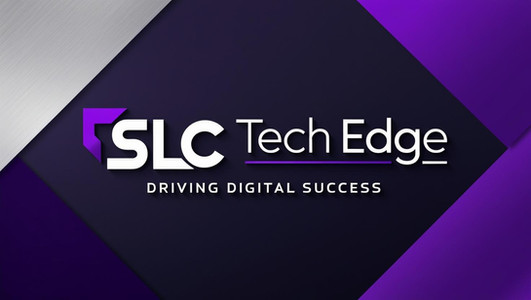How Salesforce Health Cloud is Transforming Patient Care: A Closer Look at Data Management, Communication, and Personalized Care
- SLC Tech Edge

- Apr 3
- 4 min read
Updated: Jun 12
In today's fast-paced healthcare landscape, delivering exceptional patient care while managing vast amounts of data is more important than ever. Salesforce Health Cloud is changing the game, offering healthcare providers powerful tools to efficiently manage patient information, enhance collaboration, and deliver personalized care tailored to individual needs. This innovative platform is not only redefining how care is delivered but also improving outcomes for patients everywhere.

Understanding Salesforce Health Cloud
Salesforce Health Cloud is a dynamic platform that caters specifically to healthcare organizations. By utilizing cloud technology, it centralizes patient information into one comprehensive view. This means that healthcare professionals, including doctors and nurses, can access complete patient histories at a glance.
For instance, a study found that healthcare teams using Salesforce Health Cloud reduced patient onboarding time by 30%. This streamlined approach fosters collaboration, allowing every member involved in a patient's care to remain informed and coordinated. Importantly, the integration of electronic health records (EHR) alongside social determinants of health data creates a well-rounded view of each patient.
Streamlined Patient Data Management
A key benefit of Salesforce Health Cloud is its ability to centralize patient data management. Medical records have often been stored across multiple systems, creating inefficiencies and increasing the likelihood of errors. With Salesforce Health Cloud, patient information—such as treatment histories, medications, and lab results—are housed in a single, accessible location.
This consolidation not only saves precious time for healthcare providers but also ensures the accuracy of the data being used. A remarkable statistic shows that healthcare providers who utilize this platform experience a 25% reduction in miscommunication incidents.
Real-time updates further enhance this process, meaning healthcare professionals have access to the latest information, leading to quicker and more accurate decisions about patient care.
Enhancing Communication Across Care Teams
Effective communication is crucial in healthcare. Misunderstandings or lack of proper information can lead to dire consequences for patients. Salesforce Health Cloud improves communication among care teams—physicians, nurses, mental health providers, and specialists—making it easier for them to collaborate.
The platform includes secure messaging and collaboration tools, enabling care team members to communicate directly within the system. This functionality eliminates excessive phone calls and emails that can create information silos.
For example, a hospital that implemented Salesforce Health Cloud reported a 40% decrease in email volume among care team members, streamlining communication. Furthermore, patients themselves can engage with their care teams through secure portals, which fosters transparency and encourages active participation in their treatment plans.
Delivering Personalized Care
Personalized care is essential for effective healthcare delivery. Salesforce Health Cloud allows providers to tailor services to meet each patient’s individual needs. The platform generates comprehensive profiles for patients, enabling healthcare professionals to develop treatment plans that respect unique medical histories, preferences, and circumstances.
For instance, analytics features within the platform help providers spot trends that may indicate health risks. This proactive approach enables healthcare teams to address potential issues early. A healthcare organization utilizing this functionality reported a 20% decrease in hospital readmission rates because of timely interventions.
Moreover, Salesforce Health Cloud integrates with various health apps, giving patients tools to take an active role in managing their health. Features like personalized feedback and reminders empower patients, leading to better self-management and engagement.
The Role of AI and Automation
Artificial intelligence (AI) and automation significantly enhance the capabilities of Salesforce Health Cloud, making patient care more efficient and effective. The platform analyzes large volumes of data swiftly, identifying patterns that predict potential health issues and suggesting preemptive interventions based on historical data.
Automation tools help healthcare providers manage routine tasks efficiently, such as scheduling follow-ups or sending reminders. This reduces the administrative workload on staff and ensures patients receive important care without delays.
With AI-enhanced insights, healthcare providers can make well-informed, data-driven decisions. This predictive capability contributes to a 15% overall improvement in patient outcomes reported by institutions that have harnessed this technology.
Overcoming Challenges with Data Security and Compliance
Data security is critical in the healthcare sector, where sensitive patient information must be protected. Salesforce Health Cloud addresses security concerns by employing robust encryption protocols and ensuring compliance with regulations such as HIPAA.
It also provides customizable user permissions so healthcare administrators can control who accesses specific patient information, further safeguarding data. This attention to security allows healthcare organizations to confidently utilize the platform, knowing that patient privacy is a top priority.
Embracing a New Era of Patient-Centered Care
Salesforce Health Cloud is more than just software; it represents a transformative approach to healthcare delivery. By improving patient data management, facilitating communication, and enabling personalized care, it effectively addresses many pressing challenges faced in the industry.
As the healthcare landscape continues to evolve, organizations adopting Salesforce Health Cloud can expect better patient outcomes and improved operational efficiencies. With patient care becoming increasingly complex, integrating cloud-based solutions like Salesforce Health Cloud could very well be the key to unlocking a new era of patient-centered care.
Disclaimer: The insights, tools, and strategies shared in this blog post are intended for informational and illustrative purposes only and do not constitute formal business, financial, or technical advice. While the approaches discussed may have delivered measurable value in various contexts, each organization has unique processes, systems, and strategic goals. Decisions involving CRM platforms, Salesforce implementations, or broader digital transformation efforts should be made in consultation with qualified professionals. Misaligned solutions can result in technical debt, inefficiencies, or missed opportunities. SLC Tech Edge does not accept liability for outcomes resulting from independent actions taken based on this content. We strongly recommend a thorough assessment of your current infrastructure and business needs before adopting any new tools or strategies.







Comments